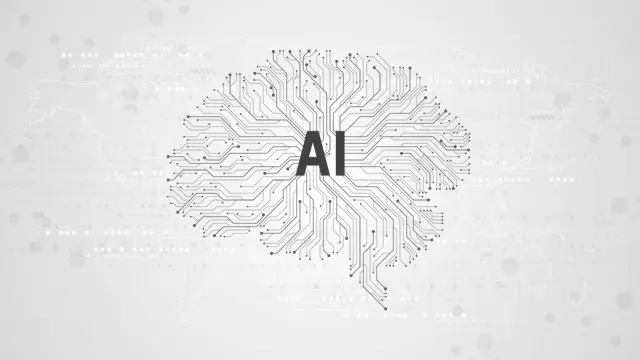The Power of Supply Chain Visibility and Collaboration Automation in Retail
In today’s fast-paced retail landscape, supply chain visibility and collaboration are crucial for businesses to thrive. The ability to track goods from production to delivery, share real-time inventory data, and collaborate seamlessly with suppliers and logistics partners can significantly improve efficiency, reduce costs, and enhance customer satisfaction.
Challenges of Supply Chain Visibility and Collaboration
Traditionally, supply chain management has been a complex and fragmented process, involving multiple stakeholders and systems. This lack of visibility and collaboration can lead to:
- Delays and disruptions in order fulfillment
- Inefficient inventory management, resulting in overstocking or stockouts
- Difficulty in identifying and resolving supply chain issues
- Poor communication and coordination among supply chain partners
The Power of Python, AI, and Cloud-Based Solutions
Automating supply chain visibility and collaboration using Python, artificial intelligence (AI), and cloud-based solutions can revolutionize retail operations. These technologies enable businesses to:
- Gain real-time visibility: Track the movement of goods throughout the supply chain, from production to delivery.
- Optimize inventory management: Use AI algorithms to forecast demand, optimize inventory levels, and reduce the risk of stockouts or overstocking.
- Enhance collaboration: Facilitate seamless communication and collaboration among suppliers, distributors, and logistics partners through cloud-based platforms.
- Identify and resolve disruptions: Monitor the supply chain for potential disruptions, such as weather events or supplier delays, and implement contingency plans to mitigate their impact.
By leveraging the power of Supply Chain Visibility and Collaboration Automation, retailers can streamline their operations, improve efficiency, reduce costs, and deliver a superior customer experience.

Python, AI, and Cloud: The Cornerstones of Supply Chain Visibility and Collaboration Automation
Unattended Bots
Python is an ideal language for developing unattended bots for supply chain visibility and collaboration automation due to its:
- Versatility: Python can automate a wide range of tasks, from data extraction and transformation to API integration and web scraping.
- Efficiency: Python’s concise syntax and extensive libraries enable rapid development of complex automations.
- Reliability: Python is a stable and mature language, ensuring the reliability of unattended bots.
Unattended bots can perform tasks such as:
- Monitoring inventory levels and generating alerts for potential stockouts or overstocking
- Tracking the status of shipments and providing real-time updates to stakeholders
- Automating the exchange of data between different supply chain systems
Attended Bots
Attended bots can assist human workers in performing tasks that require human judgment or intervention. Python’s flexibility and customization capabilities make it well-suited for building attended bots that can:
- Provide real-time guidance to warehouse workers on picking and packing operations
- Help customer service representatives resolve supply chain-related inquiries
- Automate data entry and validation tasks, reducing the risk of errors
Cloud Platforms
Cloud platforms offer a range of benefits for supply chain visibility and collaboration automation, including:
- Scalability: Cloud platforms can easily scale to handle large volumes of data and complex automation workflows.
- Reliability: Cloud platforms provide high levels of uptime and redundancy, ensuring the availability of automations.
- Integration: Cloud platforms offer a wide range of pre-built integrations with other business systems, simplifying the implementation of automations.
AI Techniques
AI techniques can significantly enhance the accuracy and efficiency of supply chain visibility and collaboration automations. Some specific AI techniques that can be used include:
- Image recognition: AI can analyze images of products or shipments to identify and classify them, automating inventory management and quality control processes.
- Natural language processing (NLP): AI can process and understand human language, enabling automations to communicate with stakeholders and extract insights from unstructured data.
- Generative AI: AI can generate new data or content, such as demand forecasts or contingency plans, based on historical data and patterns.
By leveraging the power of Python, AI, and cloud platforms, businesses can achieve unprecedented levels of supply chain visibility and collaboration, driving efficiency, reducing costs, and enhancing customer satisfaction.

Building the Supply Chain Visibility and Collaboration Automation
Sub-Processes and Automation Steps
The automation development process for supply chain visibility and collaboration using Python and cloud can be broken down into the following sub-processes:
-
Data Integration:
- Use Python to connect to various supply chain systems (e.g., ERP, CRM, logistics platforms) and extract data.
- Leverage cloud platforms to store and process large volumes of data efficiently.
-
Data Transformation:
- Clean, transform, and enrich data to make it suitable for analysis and automation.
- Use Python’s data manipulation libraries (e.g., Pandas, NumPy) to perform complex data transformations.
-
Process Automation:
- Automate tasks such as inventory management, shipment tracking, and demand forecasting using Python scripts.
- Utilize cloud platforms to orchestrate and schedule automations, ensuring timely execution.
-
Collaboration and Communication:
- Facilitate collaboration among supply chain partners by automating the exchange of data and updates.
- Use cloud-based communication channels (e.g., email, messaging platforms) to keep stakeholders informed.
-
Performance Monitoring and Analysis:
- Track the performance of automations and identify areas for improvement.
- Use cloud-based dashboards and reporting tools to visualize and analyze performance data.
Data Security and Compliance
Data security and compliance are crucial in retail. Python and cloud platforms provide robust security features to protect sensitive supply chain data, including:
- Encryption and access controls
- Compliance with industry standards (e.g., PCI DSS, GDPR)
- Regular security audits and updates
Advantages of Python and Cloud over No-Code RPA/Workflow Tools
Compared to no-code RPA/workflow tools, Python and cloud offer several advantages for supply chain visibility and collaboration automation:
- Customizability: Python allows for highly customized automations that can adapt to complex supply chain requirements.
- Scalability: Cloud platforms can handle large volumes of data and complex workflows, making them suitable for enterprise-scale automation.
- Integration: Python and cloud platforms offer extensive integration capabilities, enabling seamless connection with various supply chain systems.
- Cost-effectiveness: Python is an open-source language, and cloud platforms offer flexible pricing models, making them cost-effective solutions.
Algorythum’s Approach
Algorythum recognizes the limitations of off-the-shelf automation platforms and takes a different approach by leveraging Python and cloud. This approach enables us to:
- Develop tailored automations that meet the unique requirements of each retail client.
- Provide scalable and reliable solutions that can handle the complex challenges of supply chain visibility and collaboration.
- Offer cost-effective automation services that deliver maximum value to our clients.

The Future of Supply Chain Visibility and Collaboration Automation
The convergence of Python, AI, and cloud technologies is unlocking new possibilities for supply chain visibility and collaboration automation. As these technologies continue to evolve, we can expect to see even more innovative and powerful solutions emerge.
Potential Future Enhancements
- Predictive Analytics: Leveraging AI to predict demand, identify supply chain risks, and optimize inventory levels.
- Blockchain Integration: Enhancing data security and transparency through the use of blockchain technology.
- Autonomous Systems: Developing self-driving vehicles and drones for automated inventory management and delivery.
Subscribe and Contact Us
To stay up-to-date on the latest advancements in supply chain visibility and collaboration automation, subscribe to our newsletter.
If you are interested in implementing a custom automation solution for your retail business, contact our team today for a free feasibility assessment and cost estimate. Let us help you unlock the full potential of your supply chain and drive your business to new heights.

Algorythum – Your Partner in Automations and Beyond
At Algorythum, we specialize in crafting custom RPA solutions with Python, specifically tailored to your industry. We break free from the limitations of off-the-shelf tools, offering:
- A team of Automation & DevSecOps Experts: Deeply experienced in building scalable and efficient automation solutions for various businesses in all industries.
- Reduced Automation Maintenance Costs: Our code is clear, maintainable, and minimizes future upkeep expenses (up to 90% reduction compared to platforms).
- Future-Proof Solutions: You own the code, ensuring flexibility and adaptability as your processes and regulations evolve.









